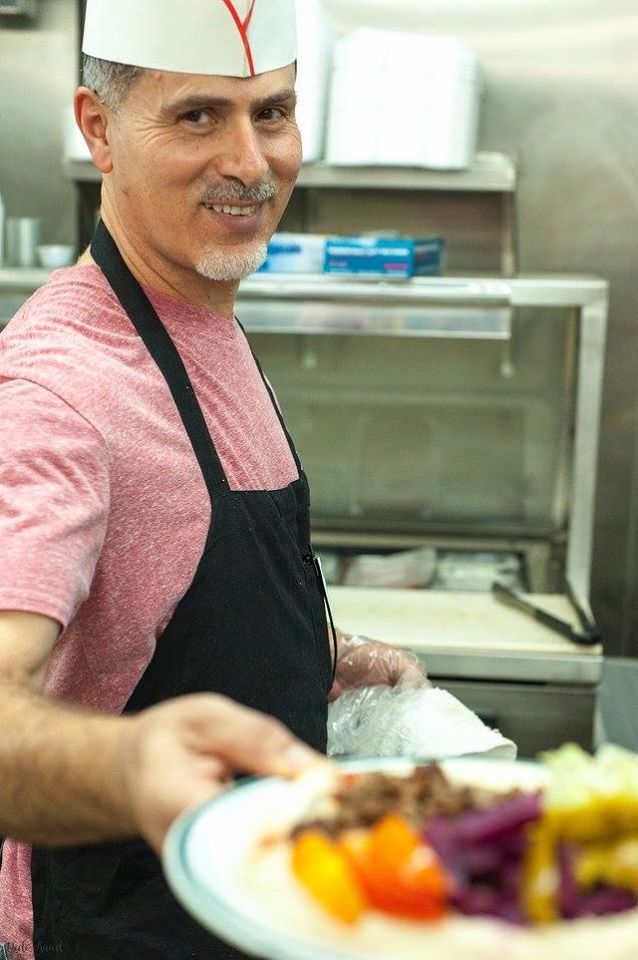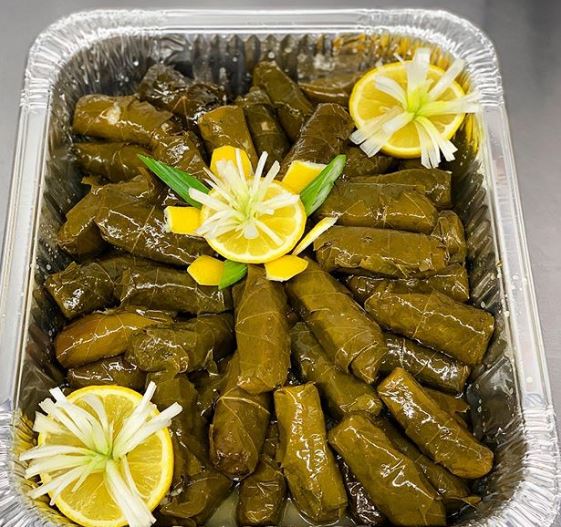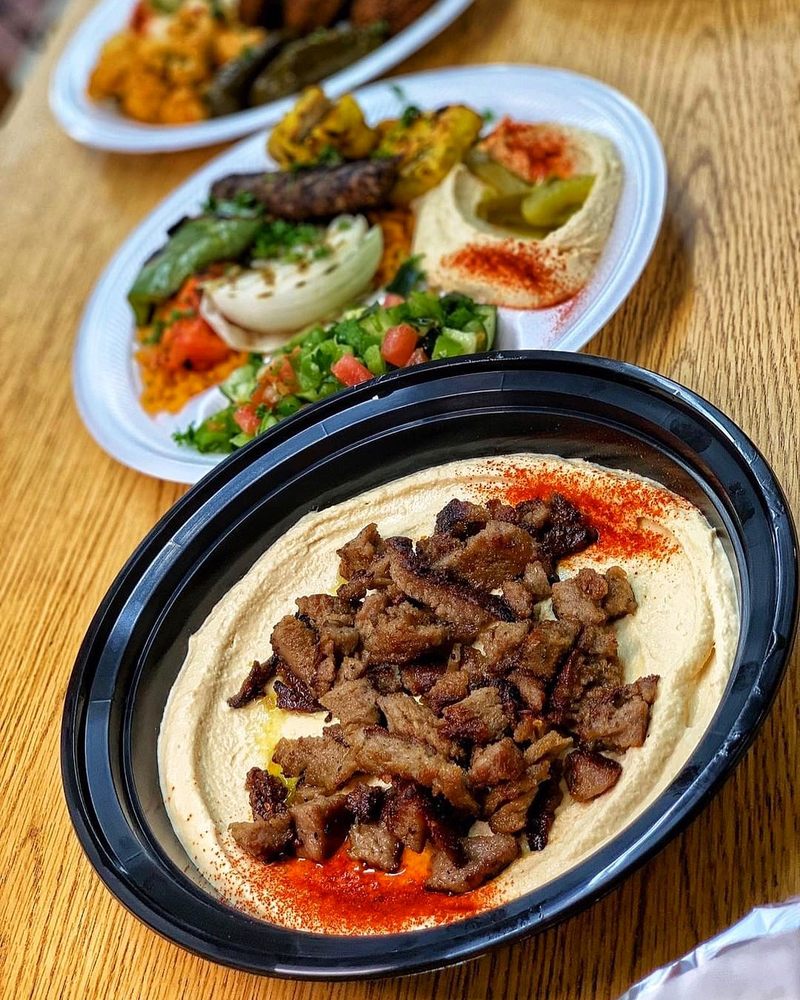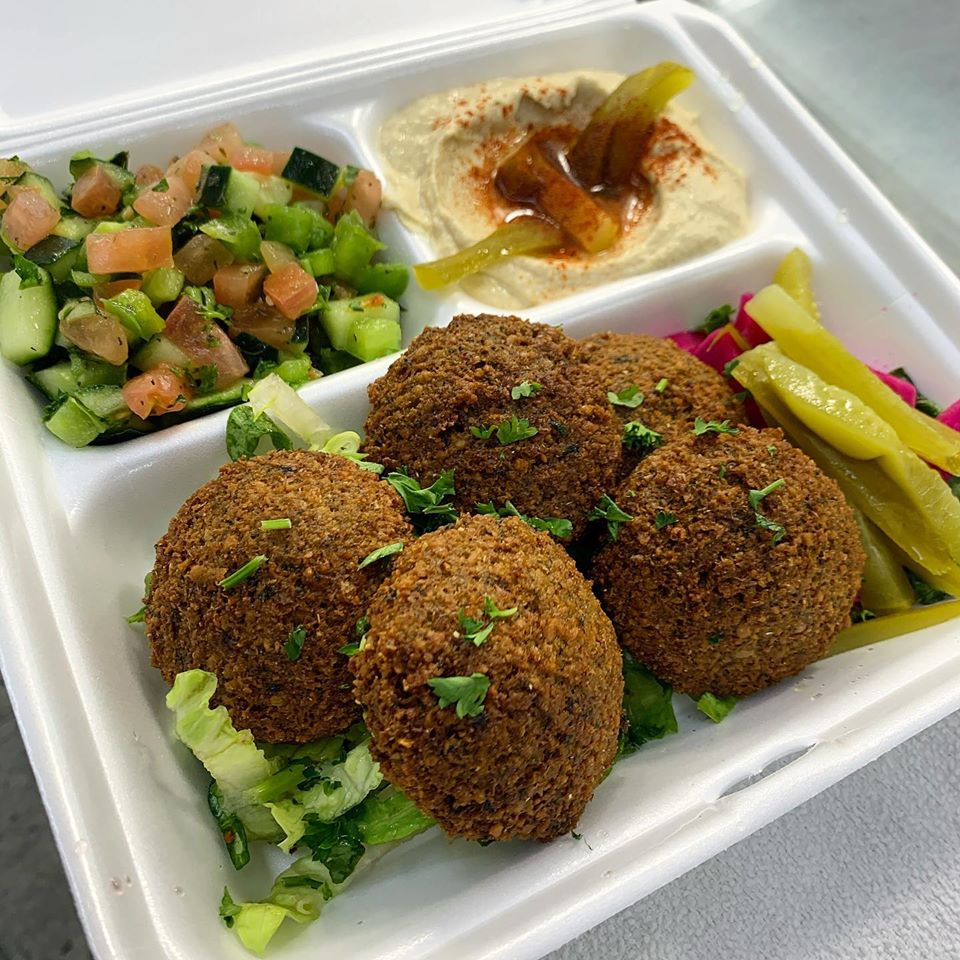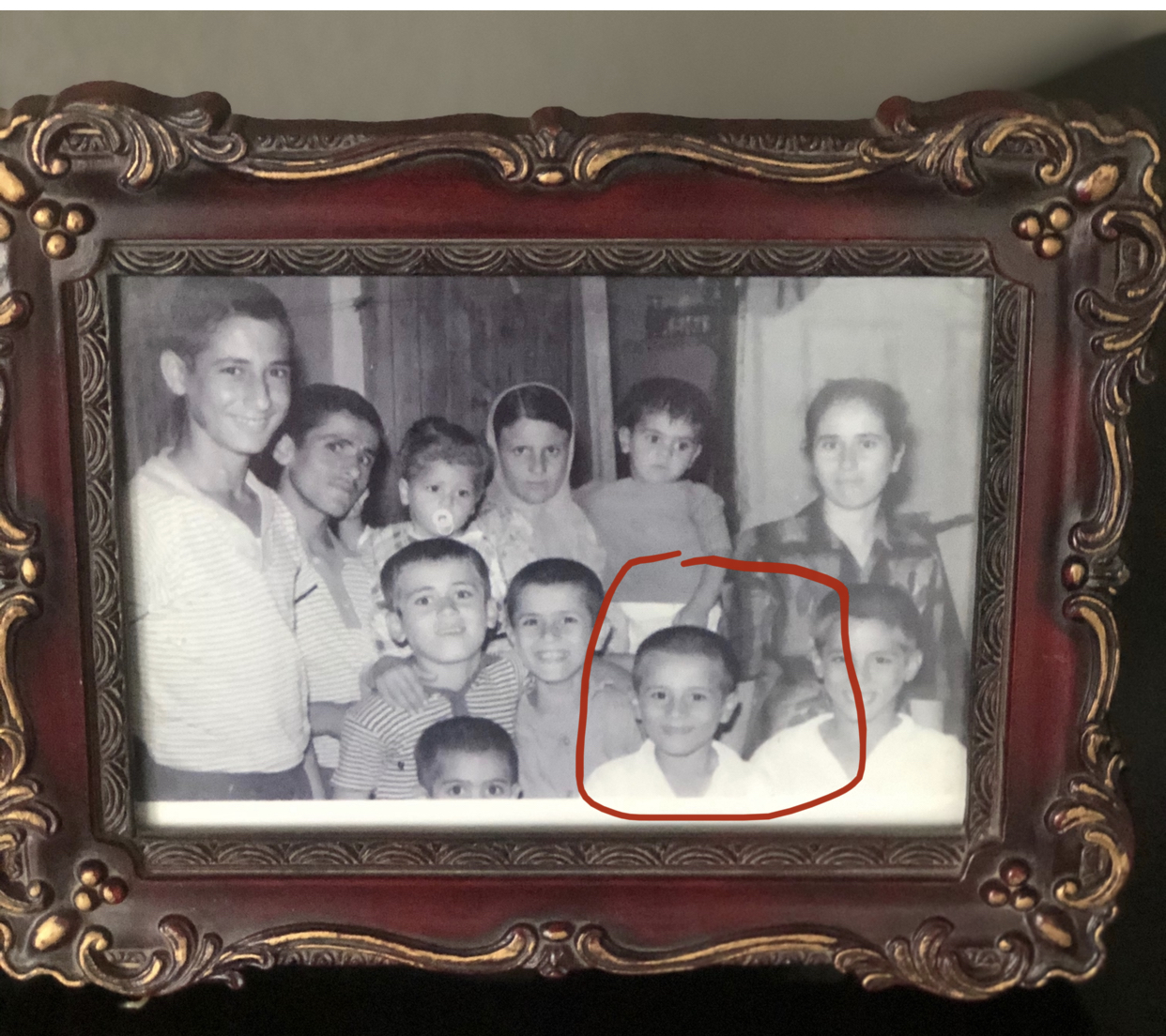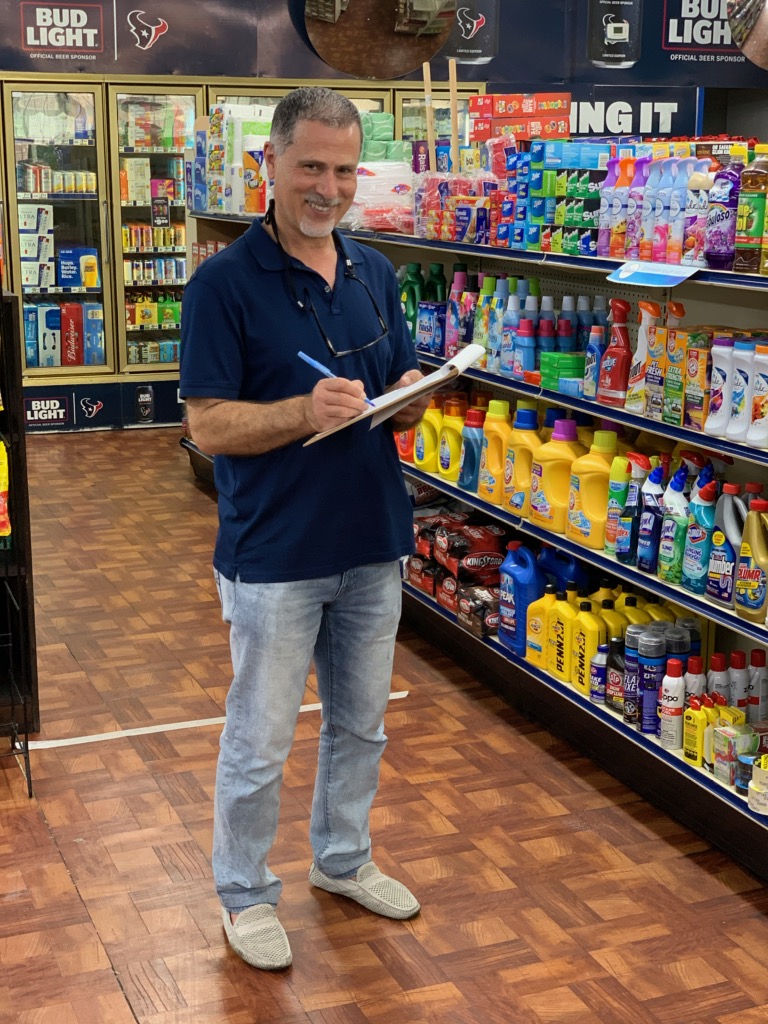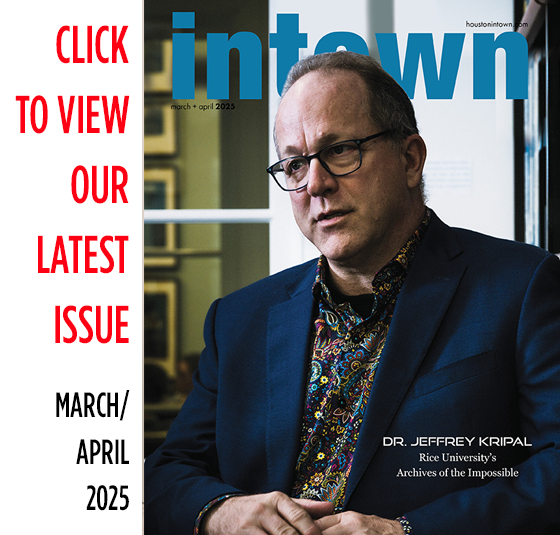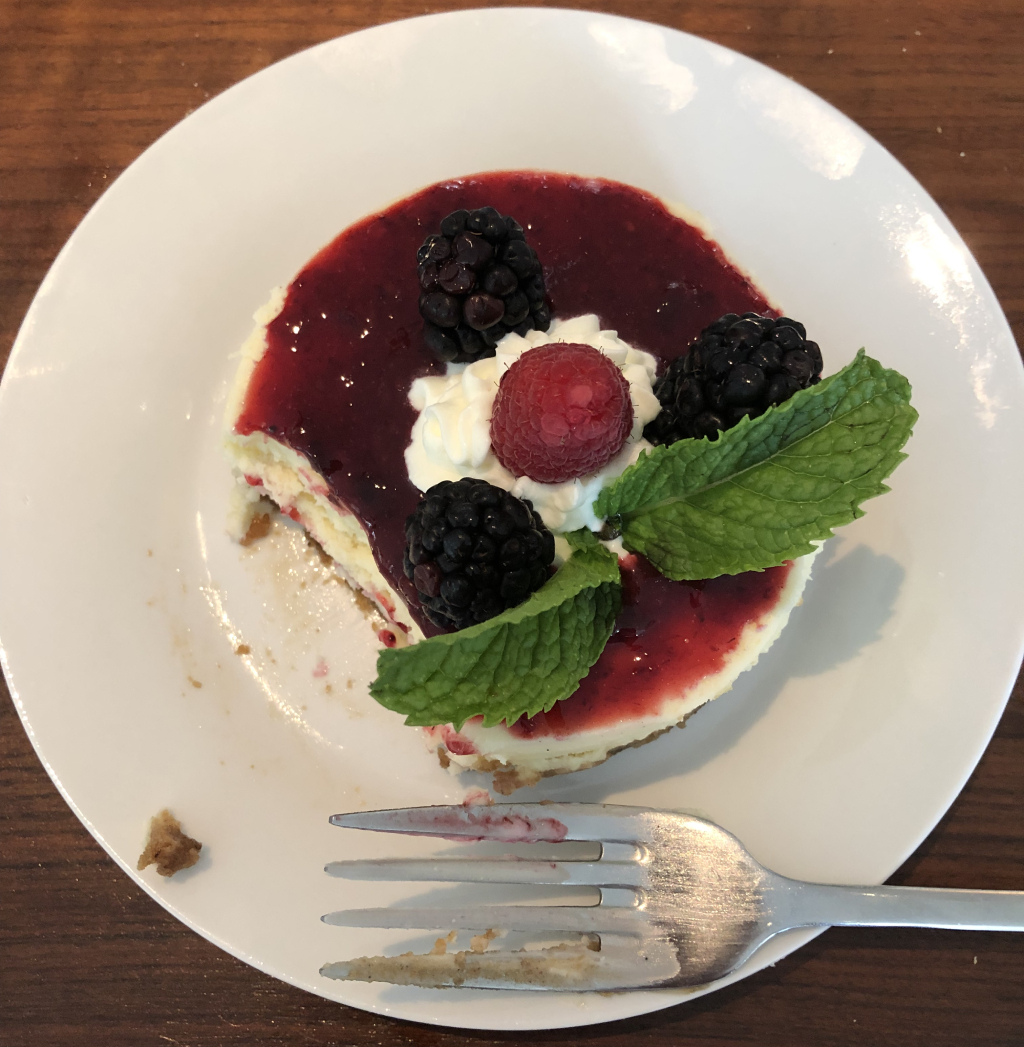Toufic Elsaadi’s Journey From a Refugee Camp to Montrose Neighborhood
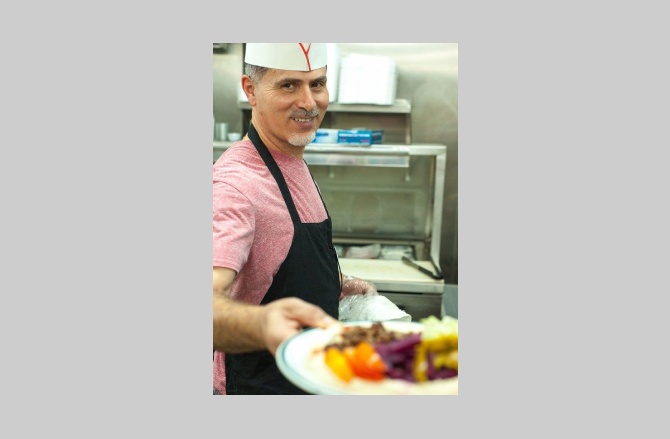
By Virginia Billeaud Anderson
Before he split Lebanon, Toufic Elsaadi knew armored tanks and car bombings. His family’s epic began however in 1948 when Israeli aircraft bombarded his parent’s Galilean village of Saffuriyya north of Nazareth. Forced from their home and olive groves with only the possessions they could carry, they were herded into the Ain Al-Hilweh Palestinian Refugee camp in Lebanon. Traces of their Palestinian village life got bulldozed with “resettlement.” Nor was it fun to be born in Ain Al-Hilweh in 1962. Described as squalid and unsafe, the camp was a compound of dilapidated cinder block buildings built by the United Nations on the outskirts of the port city of Sidon. Elsaadi lived there with his parents and 12 siblings.
Even with checkpoints and bullet holes, Lebanon had incredible beauty. The Mediterranean was blue, Roman antiquities glistened, bougainvillea covered balconies, and markets sold eggplant and pomegranates. Another thing Lebanon had was a hallowed tradition of life’s most precious moments revolving around the preparation and sharing of food. The custom in Mediterranean and Middle Eastern countries of greeting strangers with food and drinks is rooted in this. Foodie Jane Kramer wrote that no one who has grown up in the Mediterranean Middle East can really live without the colors and textures and tastes of home. This fact is illustrated by the Mediterranean food Elsaadi serves at AL Quick Stop, his convenience store on Waugh Drive in Montrose neighborhood.
You’ll smell the rotisserie Gyro when you walk past the cigarettes and toilet paper. That spit represents rich culinary history. Vertical grilling originated in Bursa in the 1800s, when Ottoman cooks tinkered with ancient kabobs. As vertical rotisserie spread from Turkey to Greece and Europe, it was called Gyro.
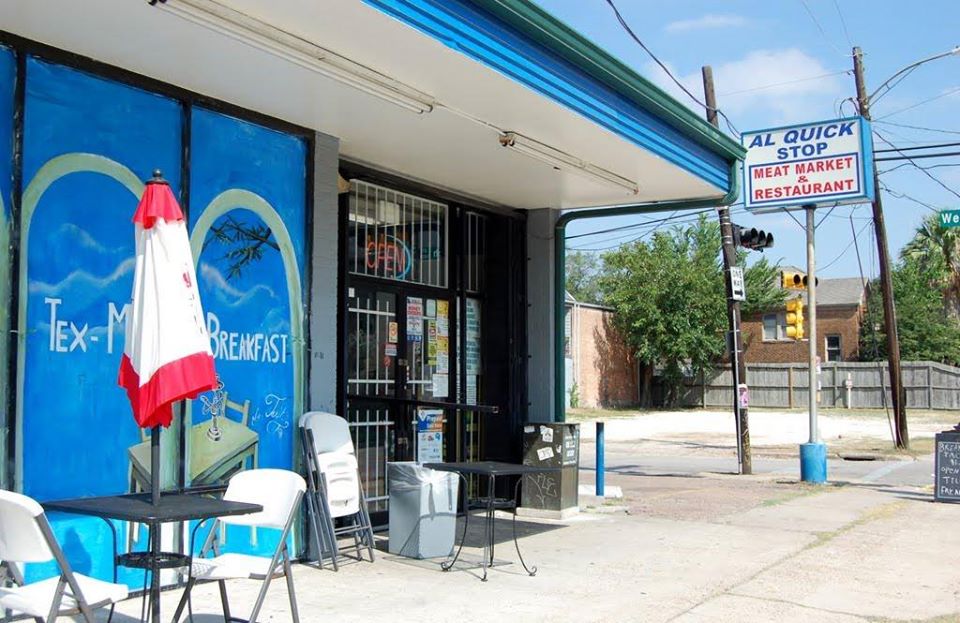
We interrogated Elsaadi in his kitchen. Is there mint in the Kibbeh and Tabbouleh? How long do you marinade? Do you use Sumac? Coriander? He guarded his spice secrets, except to divulge turmeric. Onion, garlic and cilantro form a holy trinity. Essentially, his food is traditional Eastern Mediterranean cuisine. “All my ingredients are fresh, everything is cooked in the store when you order it. We want to make people happy.”
He prepared Falafel and Hummus for a catering client, and discussed his parents. His father owned a neighborhood market in the camp. It was called Dukanit Abu Shahadi, and was located on Souk Al Khudrah, which means produce row. “As a child, I watched how hard he worked to feed 13 kids. We always had food on the table, we were always taken care of. It sticks with you forever, how far you can get with hard work.” Equally influential, Elsaadi’s mother was a highly skilled cook. “She had a reputation in the community as a great cook. Her food brought joy to the family and the community. When you grow up without much, a simple meal with others can bring real joy.”
In 1987 the Arabic speaker with insufficient English came to America “for a better life.” He worked a series of jobs, married Loubna, and in 1991 partnered with brothers to purchase AL Quick Stop. They named the store “AL” for the Arabic word “THE,” and operated 365 days a year. In 2007, Elsaadi became sole proprietor of AL. It was a year after Hezbollah and Israel hammered each other with missiles and strangled Lebanon.
Mohammad Elsaadi stacked wine bottles on his father’s store shelf. At year end they will expand into a food space in the Railway Heights Market on Washington Avenue, a new development with farmers’ market, and a beer garden. Mohammad was a mechanical engineer before he became the store’s manager in 2017. He initiated social media and internet food delivery. Things ramped up. Mohammad is also a real estate agent and owns a travel business. His brother Ali finished medical school in May, and started his residency. Omar is in high school.
What does Mohammad think of his father’s work ethic? “It really impacted me to see how hard he worked to give us everything he didn’t have.”
The camp fostered a sense of community. “In the refugee camp, we looked after one another as if we were family. AL Quick Stop feels that same connection to the neighborhood. Customers come for laundry detergent, or a Cheeseburger, we make them happy. We serve larger portions to please people. They leave with a smile, it’s a joy to see that.” After that, Elsaadi comped a woman her Stuffed Grape Leaves simply to make her happy.
Moral of this tale: Food is sacred, take it seriously. Don’t whine, make something happen. “Not everyone is dealt a fair hand, it’s what you do with your life that matters.”
